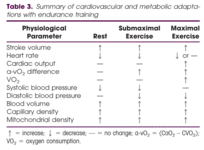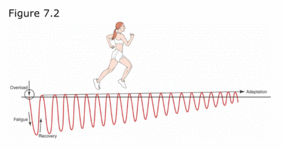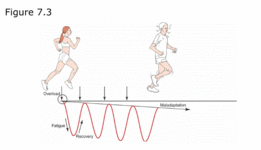The plateaus in weight loss are annoying
I agree, the human body does not like change very much, almost everything in human physiology is about maintaining homeostasis. It also annoys me when the theory does not match up to the reality because everybody is an individual.
So what should I avoid? I'm not doing anything intense.
Building up slowly is the key, it give the body time to adapt to change and for you to develop the correct form for the activity you are doing. Training too fast and too hard early does not give the body time to adapt and that is when injuries happen and the biological mechanisms kick in to fight against what you want to achieve. While exercise is great for general healt it is not the most important factor in weight loss.
That's interesting. How do hormones do that?
Estrogen is probably the main hormone to cause problems, too much or too little leads to the body storing more fat and can cause insulin resistance. Estrogen is directly involved in metabolism and maintaining a healthy weight, including helping to regulate glucose and lipid metabolism.
A lot of hormones are controlled by the pituitary gland including hormones that are related to metabolism along with the thyroid gland. (The pituitary gland controls the thyroid glands release of hormones).
Cushing disease is an example of fat gain due to a malfunction of the pituitary gland. PCOS is another condition where the hormones become out of balance and cause excess fat gain.
Thyroid hormones regulate basal metabolism, thermogenesis and play an important role in lipid and glucose metabolism and fat oxidation. Thyroid dysfunction is associated with changes in body weight and composition, body temperature and total and resting energy expenditure (REE) independent of physical activity.
Understanding the hormones and their function in the body is challenging, I have an end of semester exam next week where understanding the function of theses glands and and hormones will be a big part of the exam. Digging deeper into sport and exercise science I did not expect to be going into learning this level of detail especially for the areas not directly related to exercise but I can certainly see where is provides a wide base of knowledge. Almost all of the students in this subject are in the medical field, mostly med techs and pharmacology students.
Links
https://www.msdmanuals.com/en-au/ho...and-disorders/overview-of-the-pituitary-gland



